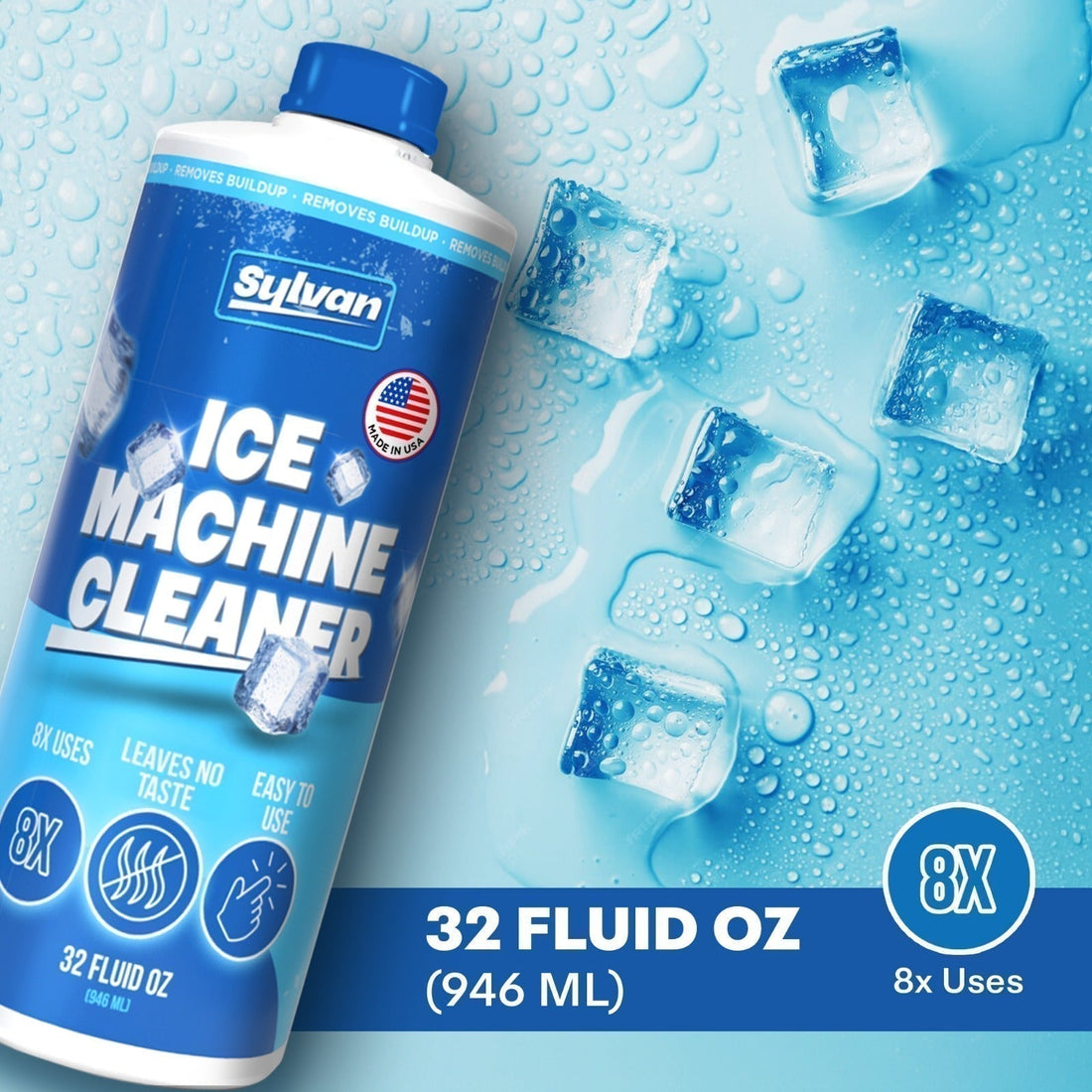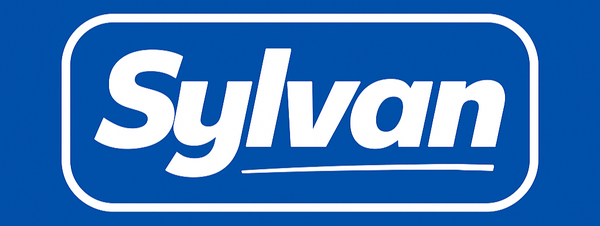
Why You Should Use a Nickel Safe Ice Machine Cleaner
Share
Introduction to Nickel Safe Ice Machine Cleaner
Ice machines, whether used in restaurants, hotels, or homes, are essential appliances that require regular maintenance to ensure optimal performance and safety. One critical aspect of maintenance is cleaning. Among various cleaning solutions, a nickel safe ice machine cleaner stands out due to its specialized formulation designed for machines with nickel-plated evaporators. Ice makers, in particular, benefit from using a nickel safe product to prevent damage and ensure longevity.
These cleaners not only remove mineral buildup and slime but also protect delicate internal surfaces, especially those sensitive to harsh chemicals. Using the wrong cleaner can corrode parts and compromise machine performance. A nickel safe product is equipment safe, formulated to protect both nickel-plated and tin-plated evaporators. That’s why understanding and investing in a nickel safe solution is a smart move for anyone who owns or maintains an ice machine.
How Ice Machines Get Dirty and Why It’s a Problem
Ice machines operate in a moist environment, making them a breeding ground for various contaminants: In ice makers, scale begins to form as minerals precipitate out of the water, leading to lime scale deposit on internal components.
- Biofilm Buildup: A slimy layer of bacteria that forms on damp surfaces.
- Mineral Deposits: Especially in areas with hard water, calcium and lime accumulate quickly.
- Mold and Algae Growth: These flourish in dark, humid parts of the machine.
Left unchecked, these contaminants can lead to foul-tasting ice, equipment breakdowns, and health violations. Regular cleaning with the right solution helps mitigate these risks.
Why Not All Ice Machine Cleaners Are Created Equal
Many general-purpose cleaners contain strong acids or alkalis that can damage metal components—especially nickel-plated surfaces commonly found in evaporators. Using non-approved solutions may void warranties, corrode surfaces, and lead to expensive repairs. That’s why choosing a nickel safe ice machine cleaner is both a preventive and protective measure. These specialized cleaners are effective at removing scale deposits without harming sensitive machine parts.
What Makes a Cleaner “Nickel Safe”?
A nickel safe cleaner is specifically formulated to be non-corrosive to nickel-plated parts. These cleaners:
- Use buffered, mild acids like citric or phosphoric acid.
- Maintain the integrity of nickel surfaces.
- Meet safety standards set by manufacturers like Manitowoc, Scotsman, and Hoshizaki.
In short, they offer effective descaling without the destructive side effects of traditional cleaners.
Types of Ice Machines That Require Nickel Safe Cleaners
Not every machine demands a nickel safe formula, but if your equipment includes a nickel-plated evaporator, it’s essential. This includes:
- Commercial Units: Found in restaurants, hotels, and hospitals.
- High-End Residential Machines: Often used in home bars or luxury kitchens.
- Popular Brands: Manitowoc, Ice-O-Matic, Hoshizaki, and others.
Always consult your machine’s manual to confirm compatibility. Be sure to follow manufacturers instructions for cleaning and maintenance to ensure safe and effective use of nickel safe cleaners.
Step-by-Step Guide to Cleaning an Ice Machine with a Nickel Safe Cleaner
During the ice maker's cycle, water begins to freeze and the pure state of water is frozen, while minerals remain in the unfrozen water. As the cycle continues, these minerals accumulate, leading to scale buildup that can affect the efficiency of the ice harvest.
Cleaning your machine doesn’t have to be daunting. Here’s a simplified process using a nickel safe solution:
- Turn off and unplug the machine.
- Remove all ice
- Add the recommended amount of nickel safe cleaner.
- Let the machine run through a full cleaning cycle.
- Rinse thoroughly to remove any cleaner residue.
- Wipe down all accessible surfaces and reassemble.
Preparing the Machine for Cleaning
- Turn off and unplug the machine.
- Drain existing water from the reservoir.
- Remove internal components like the water distribution tube and ice bin.
Applying the Nickel Safe Cleaner
- Mix the cleaner as per the product’s instructions. If the machine is heavily scaled, a longer soak time or repeated application may be necessary.
- Pour it into the water reservoir and initiate the cleaning cycle (if available).
- Scrub removable parts manually with the cleaner.
Rinsing and Sanitizing Properly
- Rinse thoroughly with clean water to remove any chemical residue.
- Run a few cycles and discard the first batch of ice.
- Sanitize the machine using a manufacturer-approved solution if needed.
If the machine continues to have operational issues after cleaning and sanitizing, it may be requiring service due to persistent scale or mechanical problems.
Frequency of Cleaning with Nickel Safe Solutions
Manufacturers recommend cleaning every 3 to 6 months, though this varies by:
- Water Hardness
- Usage Volume
- Environmental Conditions
For high-use machines, monthly maintenance might be necessary.
Benefits of Using a Nickel Safe Ice Machine Cleaner
- Preserves the machine’s lifespan
- Protects sensitive parts from corrosion
- Ensures better-tasting, hygienic ice
- Reduces service calls and downtime
- Improves energy efficiency
A clean machine uses less power and produces more ice efficiently.
Comparing Popular Nickel Safe Ice Machine Cleaners
| Brand | Size | Compatibility | Approx. Price |
|---|---|---|---|
| Sylvan-Hills | 32 oz | All Machines | $19.99 |
| Essential Values | 16 oz | Hoshizaki, Ice-O-Matic | $13 |
| Nu-Calgon | 16 oz | Manitowoc, Scotsman | $15 |
Each of these products is widely used and highly rated for safety and effectiveness.
DIY vs Professional Ice Machine Cleaning
| Aspect | DIY Cleaning | Professional Cleaning |
|---|---|---|
| Cost | Lower | Higher (service fee) |
| Time Required | 1–2 hours | Typically faster |
| Skill Level | Moderate (follow instructions) | Expert |
| Warranty Impact | Must use approved cleaner | Usually certified for warranty compliance |
Common Mistakes to Avoid When Cleaning with Nickel Safe Products
- Using the wrong dilution ratio
- Not rinsing thoroughly
- Skipping internal components
- Ignoring manufacturer instructions
- Allowing lime scale to build up can cause a hang up, where the machine jams or stops operating due to physical obstruction.
Being meticulous ensures a safe, effective cleaning process.
Troubleshooting Common Issues When Cleaning Ice Machines
Even with regular maintenance, ice machines can develop issues that impact performance and ice quality. Knowing how to troubleshoot these common problems during cleaning can help you keep your equipment running smoothly and efficiently.
One of the most frequent challenges is the buildup of lime scale deposits caused by naturally occurring dissolved minerals in your water supply. Over time, these minerals can eventually precipitate out of the unfrozen recirculating ice water and form lime scale on critical components like the water distribution tube, water trough, and distribution holes. This buildup can lead to restricted water flow, reduced ice production, and even physical obstruction in the ice maker’s cycle.
To address these issues, start by inspecting the water distribution tube and all distribution holes for any stubborn or thick deposits. If you notice plugged distribution holes or weep holes, use a soft brush to gently remove the scale deposits. For areas with thicker scale deposits, a safe ice machine cleaner with a strong dissolving action may be necessary—just be sure to follow the directions carefully to avoid damaging nickel plated evaporators, tin plated evaporators, or other sensitive components.
If you encounter persistent scale or mineral buildup, check that you’re using the correct usage rate of your nickel safe ice machine cleaner and that the system water is being properly treated. Sometimes, a drain cleaning solution may be required to fully remove scale from the remaining recirculating water system. Always replace cleaned components and ensure all distribution holes are clear before reassembling the machine.
Don’t forget to clean the water trough, water curtain, and water supply lines, as these areas are prone to mineral deposits and can be overlooked. Use warm water and a cleaning solution to thoroughly clean these parts, then rinse cleaned areas and the storage bin with fresh water to remove any remaining cleaner or minerals. After rinsing, add nickel safe ice machine cleaner to the system water as a preventive measure against future lime scale formation.
By following these troubleshooting steps and adhering to the manufacturer’s instructions, you can effectively remove scale, prevent physical obstructions, and maintain optimal ice production. Regularly cleaning and inspecting your ice machine not only extends its lifespan but also ensures you’re always serving clean, clear ice. Remember, a proactive approach to maintenance is the best way to avoid costly repairs and keep your ice machine performing at its best.
Environmental Impact of Nickel Safe Cleaners
Most modern nickel safe cleaners are designed with eco-conscious ingredients and:
- Biodegradable components
- Non-toxic formulas
- Safe disposal instructions
Always dispose of used solution according to local regulations.
Where to Buy the Best Nickel Safe Ice Machine Cleaners
- Amazon
- Sylvan Hills Webshop
- Authorized dealer websites
Ensure you're buying a genuine product with clear labeling.
FAQs About Nickel Safe Ice Machine Cleaner
Q1: Can I use vinegar as a cleaner instead?
A: No. Vinegar is acidic and may damage nickel plating over time.
Q2: How do I know if my ice machine needs a nickel safe cleaner?
A: Check the manual or look for mention of nickel-plated components.
Q3: Is it safe to use a nickel safe cleaner in all ice machines?
A: Yes, though it’s especially needed for nickel-plated parts. It’s generally safe for others as well.
Q4: How long does the cleaning process take?
A: Typically 1–2 hours including preparation, cleaning, and rinsing.
Q5: What does “NSF Certified” mean on cleaner labels?
A: It ensures the product meets public health and safety standards.
Q6: Do I need to rinse after using the cleaner?
A: Absolutely. Rinsing is crucial to remove chemical residue and prevent ice contamination.
Q7: Why do minerals build up in my ice machine?
A: When water freezes, it tends to do so in its pure state, leaving minerals behind in the unfrozen water. Over time, these minerals accumulate and form scale deposits.
Conclusion: Invest in Longevity and Cleanliness with the Right Cleaner
Maintaining your ice machine with a nickel safe ice machine cleaner is a proactive step toward better hygiene, efficiency, and equipment longevity. It's a small investment with massive returns—ensuring clean, safe ice for everyone who uses it.
Also check out our general guide for Ice Machine Cleaning here.
